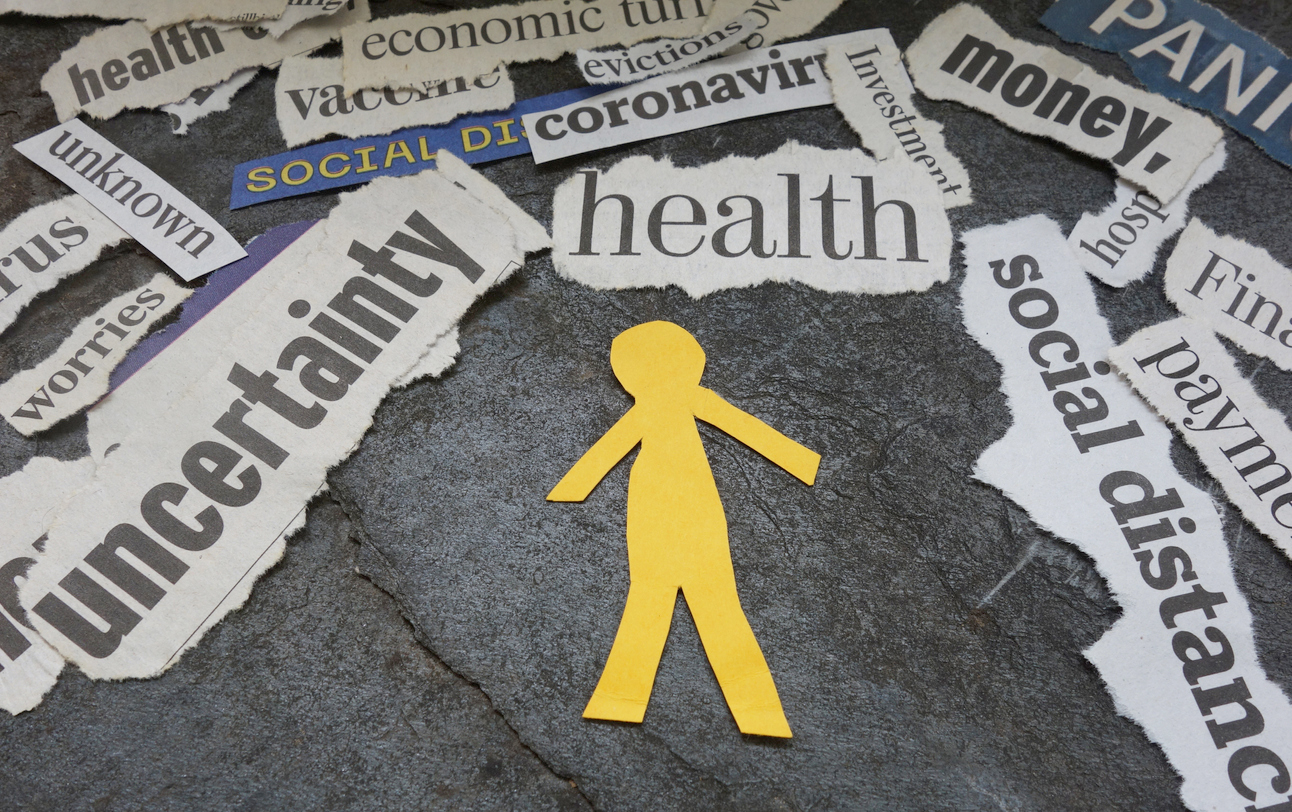As March greeted us this year, many people thought of where they were a year ago. Anniversaries of trauma and grief are always difficult, and the COVID-19 pandemic has been a trauma to many people across the world. According to the National Alliance on Mental Illness, “The coronavirus has resulted in an unprecedented crisis that affects not only our physical health and daily lives, but also our mental health.” We are living in a rare period where we are all experiencing the same event.
Have you noticed yourself, or a friend or relative, experiencing changes in appetite, hygiene or sleep patterns? Despite us all being in this together, we’re experiencing an isolation that sometimes leads to depression and anxiety. As we start to see the potential light at the end of the tunnel, it remains important to focus on safe socialization and maintain safety precautions, like mask wearing and social distancing.
The most important way to protect your mental health is to minimize isolation while still staying safe. Check-in with friends and family via the phone, zoom, emails, or even letters – especially during holidays. If you need to talk, call a friend; do a video call to see their face if that helps. Be supportive to others. Reach out to them to let them know you are there. It’s important to stay in touch and it helps minimize the feeling of isolation. As the weather warms up, meet up with local friends and take a safe stroll through the park or along a trail together. Physical activity can also be valuable for mental health. Spend time with pets. They provide comfort and emotional support and help us fight isolation and loneliness.
As time continues passing, it’s more important than ever to find safe ways to connect with loved ones. Get creative with how you spend quality time with friends and families and make it memorable. Important celebrations in our lives have been celebrated with drive-by birthday parties or parades – take part in them! If you’re missing going out for pedicures with friends, try home spa day on Facetime. Love to cook? Try a new recipe once a week. Have a weekly movie viewing party through Zoom, visit the drive-in for a movie, get involved in an online book club. Plan things to look forward to, even though those plans may look different. According to the experts, it’s important to acknowledge that holidays are special even when we can’t spend them together. It’s better to find ways to celebrate at a distance than to put everything off until regular celebrations resume.
Stress can cause some of the following:
- Changes in appetite
- Feelings of worry and fear
- Difficulty sleeping or concentrating
- Physical reactions like headaches or other body pains
- Worsening of chronic health or mental conditions
As vaccinations for COVID-19 have begun, mental health experts are seeing a rise in vaccine anxiety. Kylee Henderson, from Cornerstone Care, mentions that the vaccines have been in progress for some time and are already well-researched because of SARs. “Getting vaccinated helps us all work together to get to herd immunity. It’s important to make decisions for both our own safety and for others’ as well,” she says. “We all have to get through this together.”
Find healthy ways to cope with stress. Avoid oversaturation of the news and follow trusted news sources to minimize anxiety. If what you see on social media is upsetting or stressful, set time limits. It’s important to be informed of world events, but too much exposure can lead to stress and anxiety. Meditation can be helpful, and focusing on taking deep breaths can help you feel calmer.
Follow healthy daily routines, make your bed, call a loved one, and make sure to take breaks. If you are working from home, designate an end of the workday and follow it. Time to relax is important. Get plenty of sleep and eat healthy foods. Exercise if you are able, or just take a walk around town. When you have free time, spend time on activities and hobbies that you enjoy. Make time to read, consider learning a new skill, or taking a class online.
Realizing how you are feeling is a way to manage stress and cope with the situation. Spend some time evaluating your feelings each day. If you’re overwhelmed and don’t know what to do, reach out to a professional. Cornerstone Care offers telehealth therapy that can be done by video call. There are also online support communities listed on www.nami.org.
As we continue to fight our way through this, we need to keep checking in on our loved ones and ourselves. Your health – both mental and physical – are important.
Need Help?
Crisis Walk-Ins: SPHS Care Center 724-627-6108 35 South West Street, Waynesburg, PA Mon. – Fri., 8:30am – 4:30pm
Centerville Clinics 724-627-8156
Greene County Mental Health Program 724-852-5276
Cornerstone Care 724-627-4309, 724-943-3308, 724-324-9001
Axiom Family Counseling 724-627-0608
The Stern Center 724-627-0922, 724-966-2289
WHSG Center for Recovery and Wellness 724-627-2756 STTARS (Sexual Trauma Treatment and Recovery) 724-229-5007, 724-627-6108
